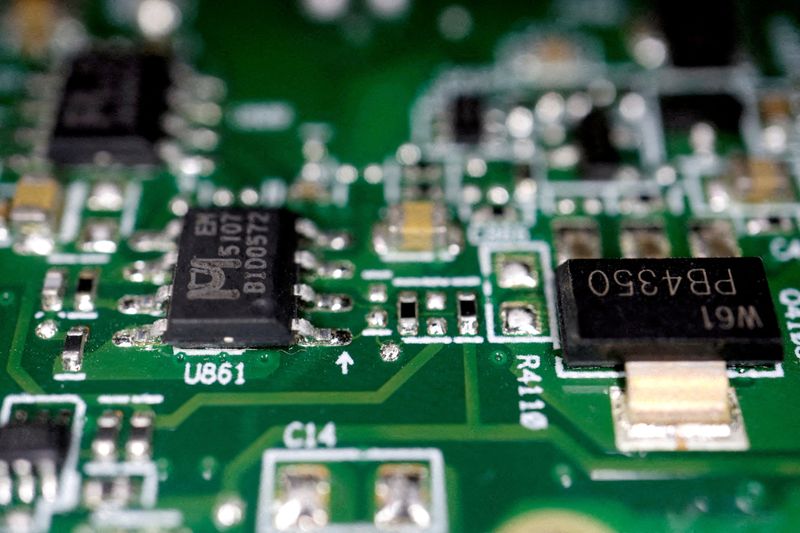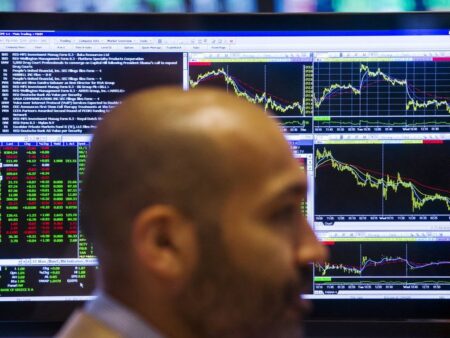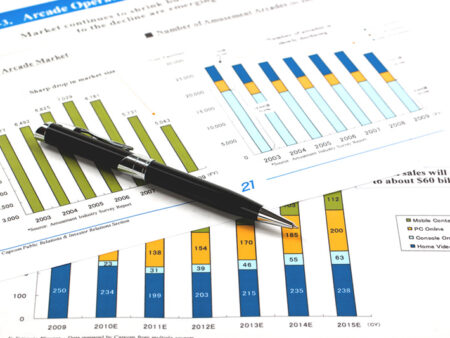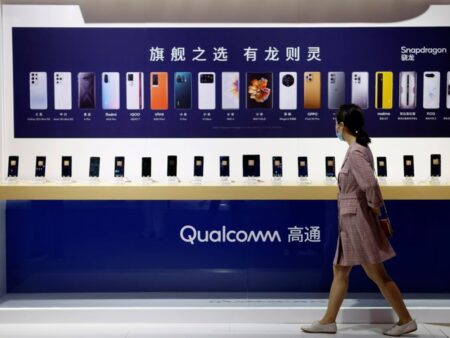By David Shepardson
WASHINGTON (Reuters) -The U.S. Commerce Department said on Friday it was finalizing an award of up to $4.745 billion to South Korea’s Samsung Electronics (KS:) and up to $1.61 billion for Texas Instruments (NASDAQ:) to expand chip production.
The department also finalized an award of up to $407 million to help fund Amkor Technology (NASDAQ:)’s planned $2 billion advanced semiconductor packaging facility in Arizona, which is set to be the largest of its kind in the U.S.
The Samsung award is about $1.7 billion smaller than the preliminary award announced in April of up to $6.4 billion and reflects its revised smaller investment plans, the department said.
A Commerce spokesperson said the department “changed this award to align with market conditions and the scope of the investment the company is making.”
A Samsung spokesperson said its “mid-to-long-term investment plan has been partially revised to optimize overall investment efficiency” but declined to disclose details of its agreement with the Commerce Department.
In April, administration officials said Samsung planned to invest roughly $45 billion to build two chip production facilities, a research center and a packaging facility by 2030. On Friday, Commerce said Samsung plans to invest $37 billion and complete the projects by the end of the decade.
Texas Instruments has pledged to invest more than $18 billion through 2029 in two new factories in Texas and one in Utah, which are expected to create 2,000 manufacturing jobs. The company is getting $900 million for its Texas operations and $700 million.
Amkor’s Arizona plant when fully operational will package and test millions of chips for autonomous vehicles, 5G/6G and data centers. Apple (NASDAQ:) will be its first and largest customer with the chips produced at a nearby Taiwanese chipmaker TSMC facility.
Amkor CEO Giel Rutten said the facility “will serve as a critical cornerstone in establishing a robust semiconductor manufacturing supply chain within the United States.”
Congress in August 2022 approved a $39 billion subsidy program for U.S. semiconductor manufacturing and related components along with $75 billion in government lending authority.
Last month, Commerce finalized an award of up to $7.86 billion for Intel (NASDAQ:) down from $8.5 billion announced in March after the California-based chips maker won a separate $3 billion award from the Pentagon.

Commerce has now finalized the largest awards it offered earlier this year, including this week, finalizing up to $458 million for SK Hynix in Indiana. In total, Commerce has finalized over $33 billion of the over $36 billion in proposed incentives funding.
“With this investment in Samsung, the U.S. is now officially the only country on the planet that is home to all five leading-edge semiconductor manufacturers,” said Commerce Secretary Gina Raimondo.
Source link
















